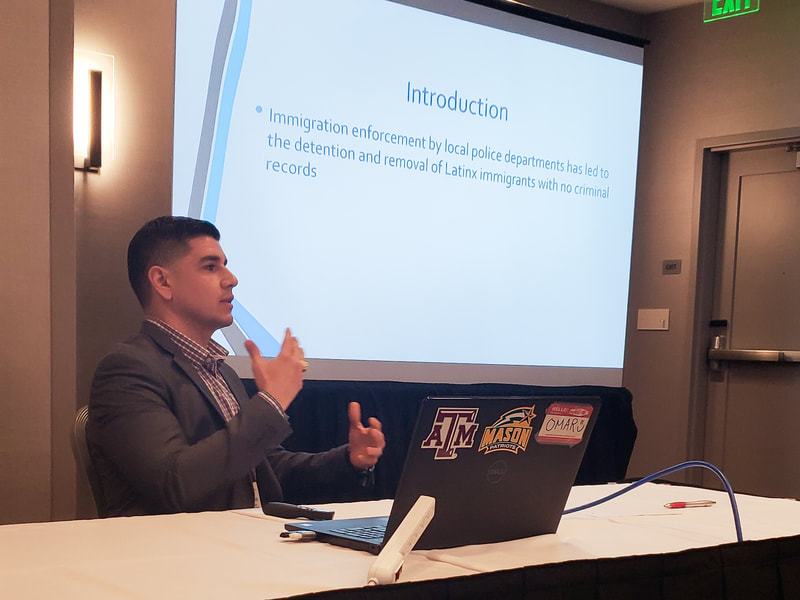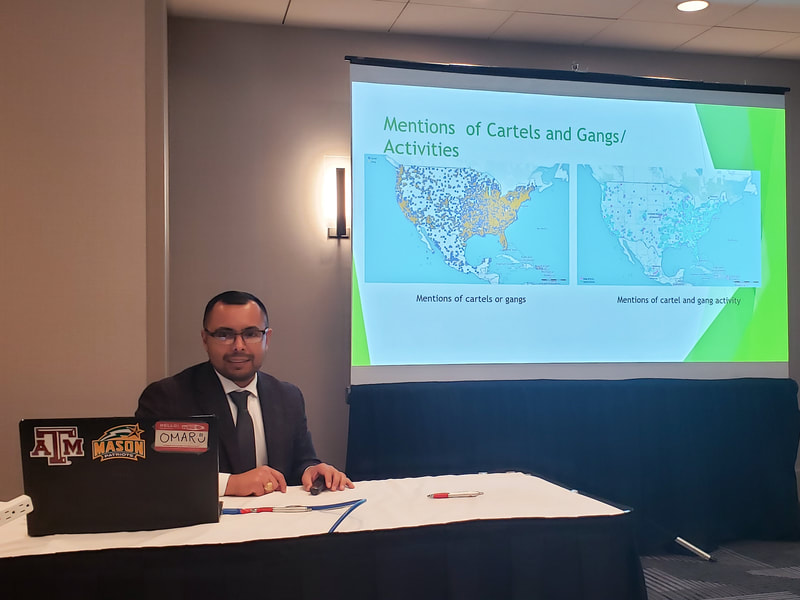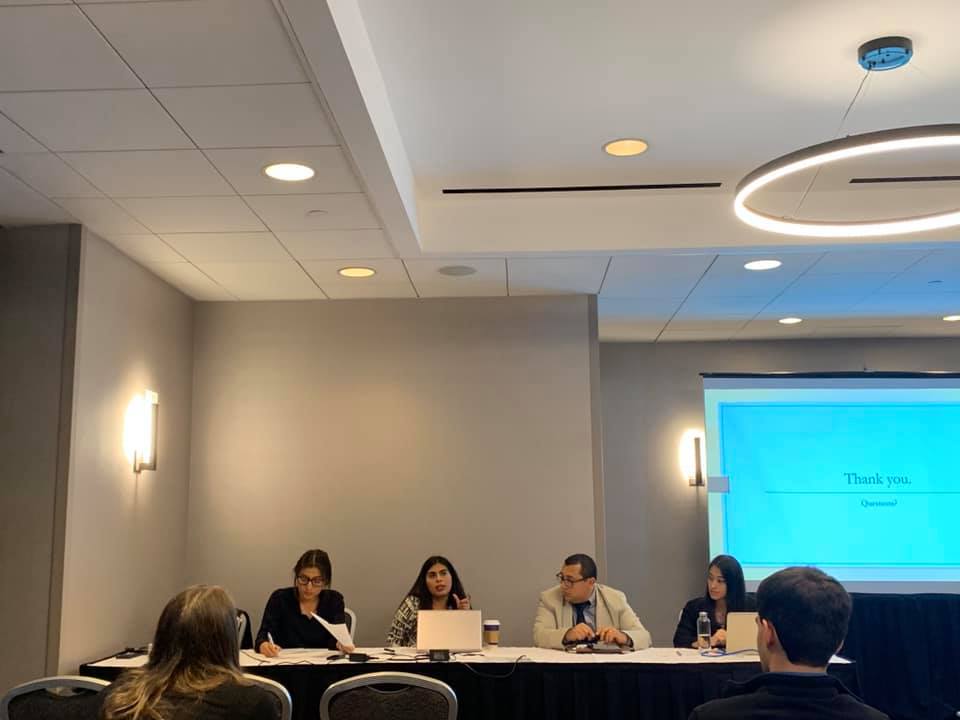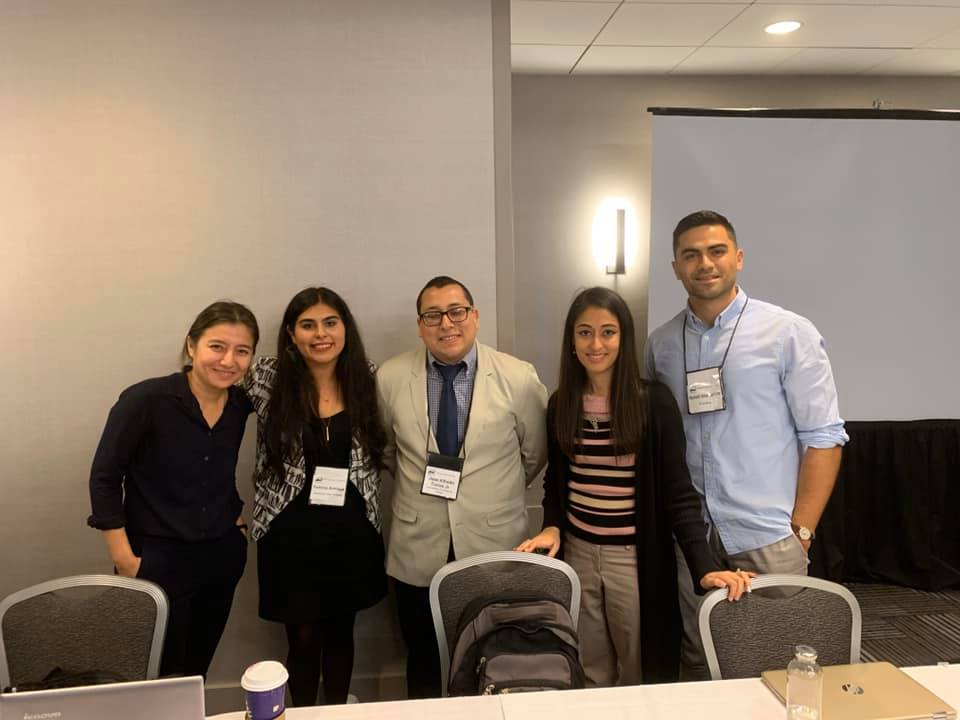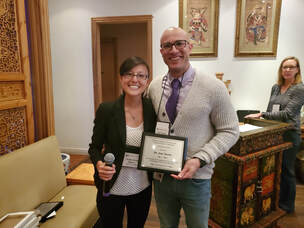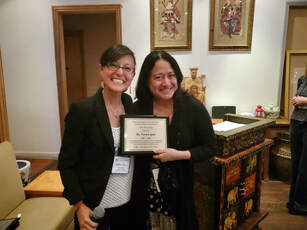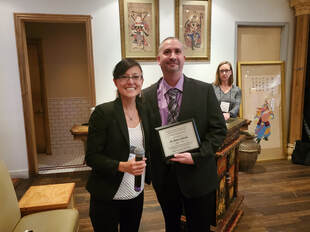LC at the annual meeting of the
|
What about Girls? Centering the Experiences of Latina Girls Involved in the Juvenile Justice SystemLatina/o/x Criminology Panel 1
Relatively little criminological research has focused on system-involved Latina girls. Thus, the intent of the proposed panel is to center the experiences of Latinas by considering the following questions: Why should we study the experiences of system-involved Latinas? What do we know about Latina girls’ experiences across various contexts such as schools, detention centers, and neighborhoods? And how are these experiences shaped by gender, ethnicity, class, documentation status, and past gang involvement? By addressing these questions, we hope to foster future conversations about why studying the experiences of system-involved Latina girls is an important area of criminological research and inquiry.
Discussants
|
Envisioning Abolition through Coalition: Xicanx/Latinx, Black, and Indigenous Voices on CarceralityLatina/o/x Criminology Panel 2
Each of the papers on this panel draw from knowledge and experiences from the margins of society and scholarship to create a more comprehensive understanding of carcerality in 21st century “western” society. As each of the papers will argue, by acknowledging how the legacy of white supremacy, indigenous genocide, anti-blackness, and global carceral capitalism have served as foundational mechanisms which have been used to sustain and maintain the global carceral regime, our panel will help reconceptualize and push the academic imaginary and boundaries to take seriously the praxis of prison and police abolition. Discussants also point to the Black/white dichotomy clearly present within these discourses to discuss the importance of why including Xicanx/Latinx voices is crucial to understanding the entirety of the carceral system. Currently the field of criminology continuously fails to center the historical ways in which the United States of Amnesia has sustained and maintained its power and control over its most vulnerable populations through its caging of millions of people. This collection of papers will help move academic discourses toward a much-needed paradigmatic change in the discipline by centering revolutionary abolitionists practices to begin dismantling the pillars of the carceral system.
Discussants
|
Inequalities Confronting Injustice on the Frontera (U.S.-Mexico) Border and a Declaration of a State of Emergency: A Pedagogical Standpoint of the U.S.-Mexico BorderLatina/o/x Criminology Panel 3
The focus of this panel discussion is to disseminate knowledge and information about society and life on the frontera (U.S.-Mexico borderlands). Mexican-American (Chicano/Tejano/Mestizo) instructors, who were born and/or grew up in the Rio Grande Valley (South Texas) and graduated from universities on the US-Mexican border, converge in explaining how to teach current issues about the U.S.-Mexico Border. Furthermore, the U.S.-Mexico border has the most dangerous cities in Mexico, but on the other side, America has its safest cities on record. As such, this panel will provide information debunking misconceptions that the media and politicians portray regarding on one of the most productive regions in America. Nevertheless, the Latinx xenophobic phenomenon will be analyzed in an effort to illuminate the fear Americans have on the frontera.
Discussants
|
Transnational Threats and the Victimization of ImmigrantsLatina/o/x Criminology Panel 4
This panel is focused on providing an analysis of the social construction of transnational threats within current levels of political rhetoric and how such state actions often result in the victimization of immigrants. From the creation of gang scares, the use of law enforcement in immigration enforcement, the impact upon families, along with data regarding victimization risks encountered by undocumented immigrants. Each of these presentations work to provide greater scholarly insight into a politicized topic.
Discussants
|
Altering, Documenting, and Resisting Carceral Practices: Policing, Gangs, and SchoolsLatina/o/x Criminology Panel 5
This panel focuses on efforts to alter carceral practices involving policing, gangs, and schools. The presentations begin with efforts to improve police and community relationships. It then examines how efforts to merge university and police collaborations can improve dialogue by increasing attitudes, learning, and performance. Young males living in environments with higher police contact in schools and in their community share strategies with their younger peers about how to avoid detrimental consequences by communicating wisdom through letters. The carceral impact of policing also includes school discipline, and the final presentation will focus on the criminalization of girls by school resource officers. Thus, the importance of merging the dialogue regarding policing with the populations most impacted.
Discussant
Maria Beatriz Velez
University of Maryland |
The Gang Paradox: Inequalities and Miracles on the U.S.-Mexico Border
|
|
Chair
Vera Lopez, Arizona State University |
Author
Robert Duran, Texas A&M University |
Critics
|
Randol Contreras
University of California, Riverside |
|
|
Ed A. Munoz
University of Utah |
Amy Andrea Martinez
The City University of New York |
|
|
The freedom of association means that people can come together in organization to fight for solutions to the problems they confront in their communities. The great social justice changes in our country have happened when people came together, organized, and took direct action. It is this right that sustains and nurtures our democracy today.
~ Dolores Huerta ~

